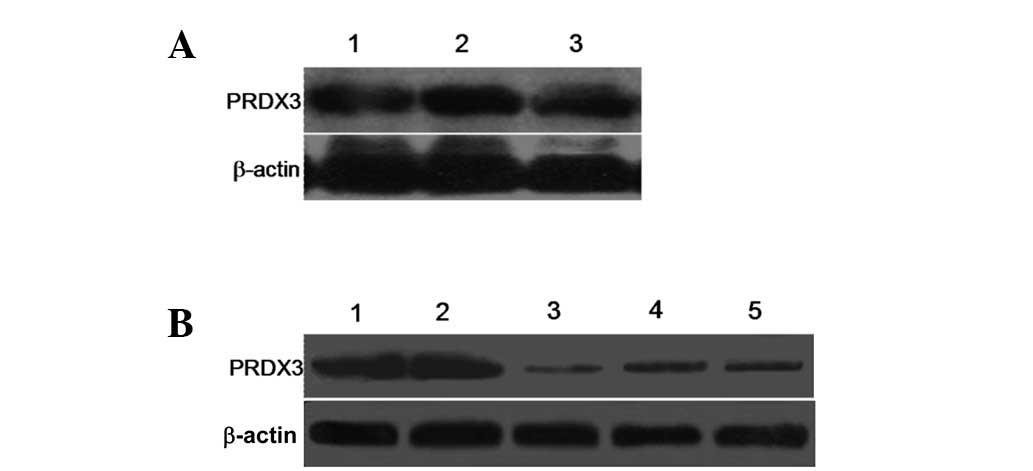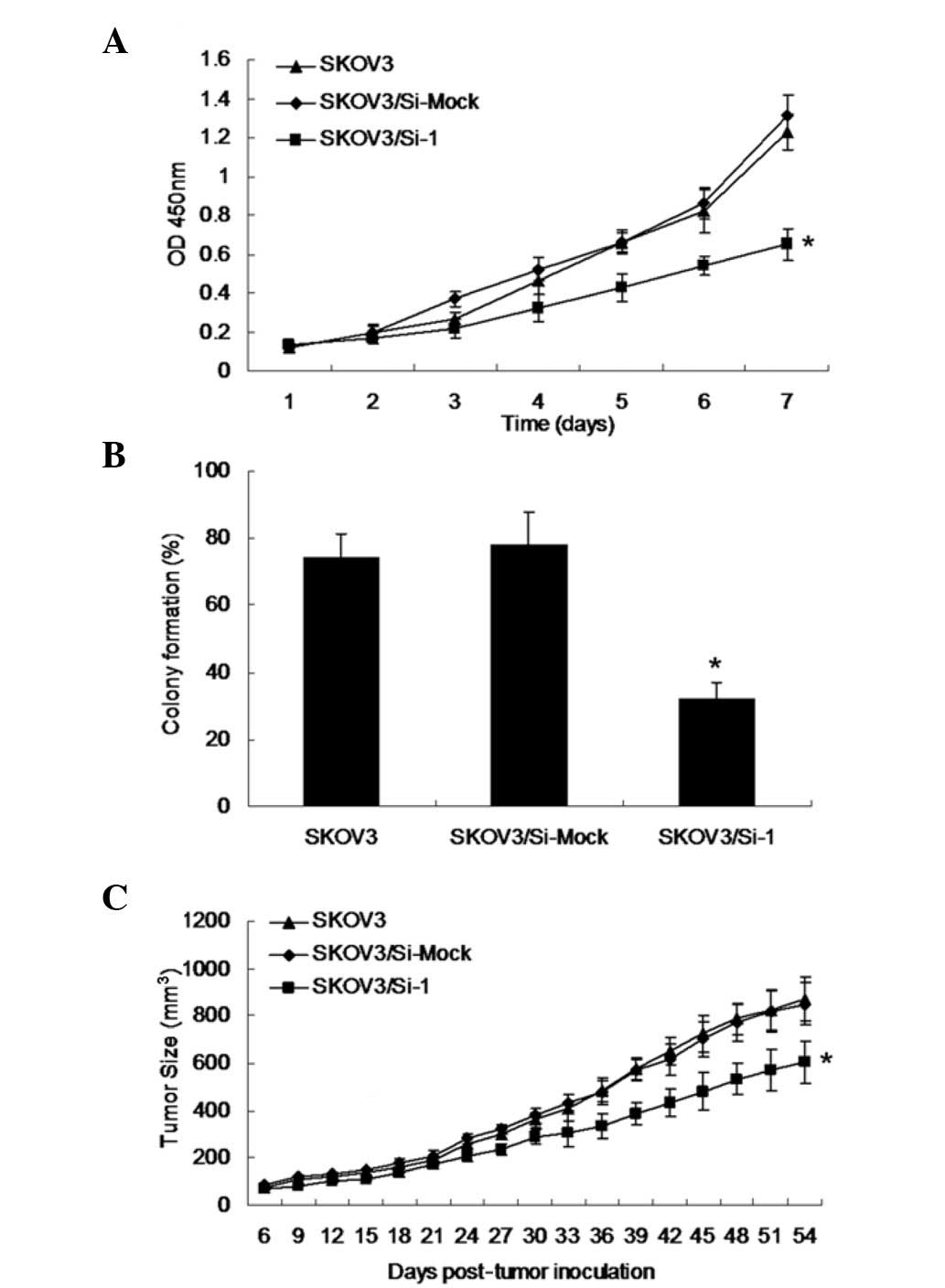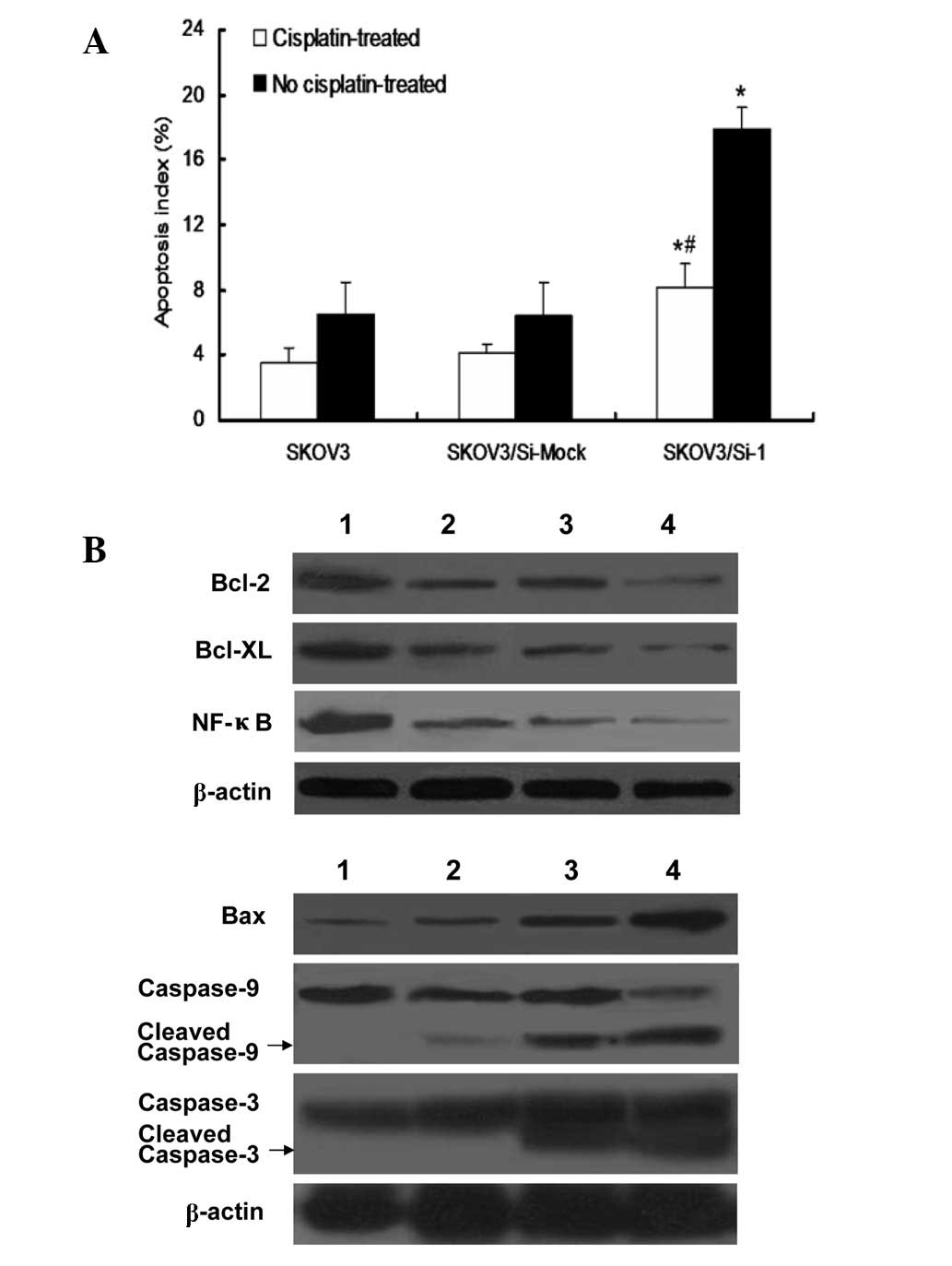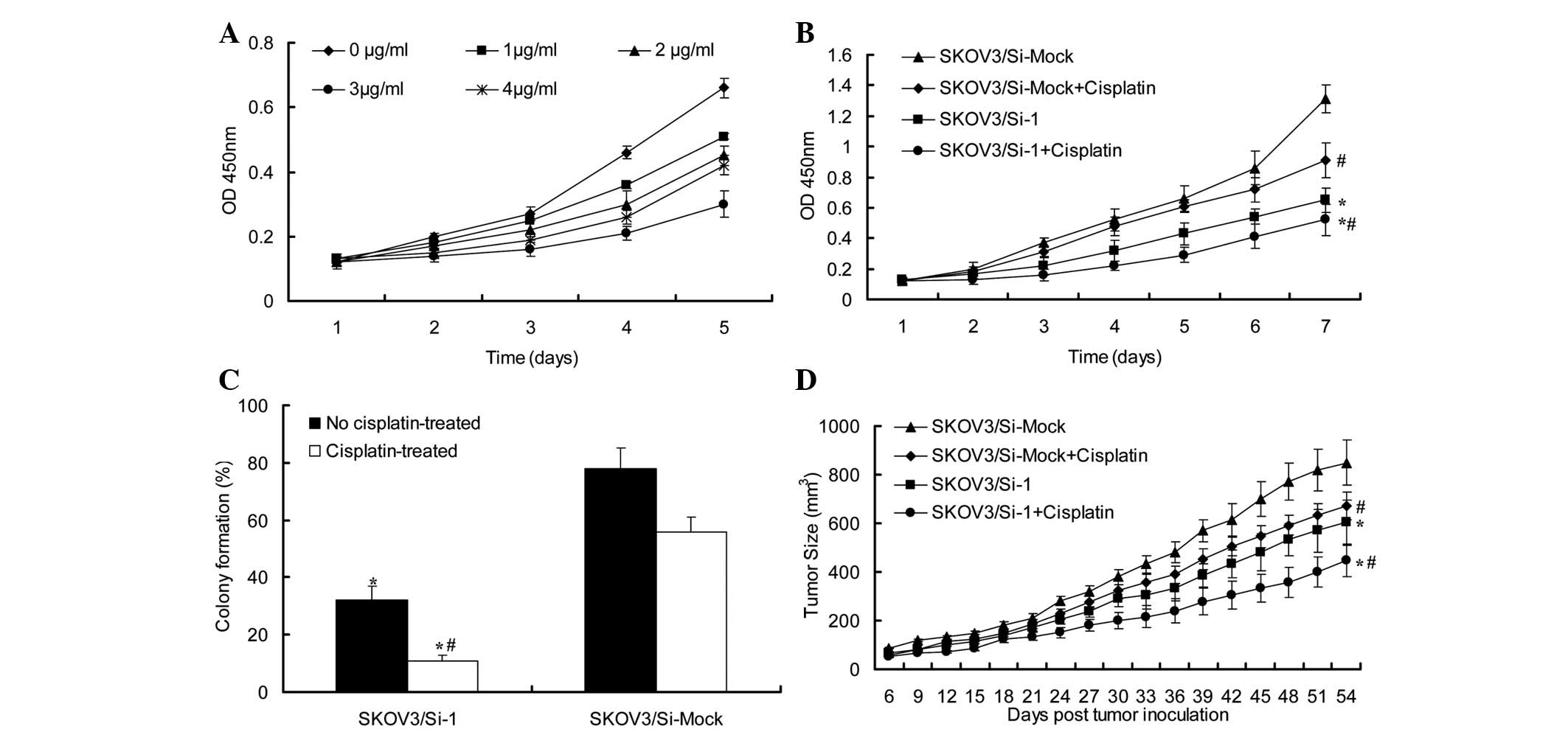|
1
|
Wolf JK and Jenkins AD: Gene therapy for
ovarian cancer (Review). Int J Oncol. 21:461–468. 2002.PubMed/NCBI
|
|
2
|
Felix AS, Stone RA, Bowser R, Chivukula M,
Edwards RP, Weissfeld JL and Linkov F: Comparison of survival
outcomes between patients with malignant mixed mullerian tumors and
high-grade endometrioid, clear cell, and papillary serous
endometrial cancers. Int J Gynecol Cancer. 21:877–884. 2011.
View Article : Google Scholar
|
|
3
|
Lalwani N, Prasad SR, Vikram R, Shanbhogue
AK, Huettner PC and Fasih N: Histologic, molecular, and cytogenetic
features of ovarian cancers: implications for diagnosis and
treatment. Radiographics. 31:625–646. 2011. View Article : Google Scholar : PubMed/NCBI
|
|
4
|
Ledermann J, Harter P, Gourley C, et al:
Olaparib maintenance therapy in platinum-sensitive relapsed ovarian
cancer. N Engl J Med. 366:1382–1392. 2012. View Article : Google Scholar : PubMed/NCBI
|
|
5
|
Stańczyk M, Gromadzińska J and Wasowicz W:
Roles of reactive oxygen species and selected antioxidants in
regulation of cellular metabolism. Int J Occup Med Environ Health.
18:15–26. 2005.PubMed/NCBI
|
|
6
|
Okai Y, Sato EF, Higashi-Okai K and Inoue
M: Potentiating effect of an endocrine disruptor, paranonylphenol,
on the generation of reactive oxygen species (ROS) in human venous
blood - association with the activation of signal transduction
pathway. J UOEH. 29:221–233. 2007.
|
|
7
|
Moon HJ, Ko WK, Han SW, Kim DS, Hwang YS,
Park HK and Kwon IK: Antioxidants, like coenzyme Q10, selenite, and
curcumin, inhibited osteoclast differentiation by suppressing
reactive oxygen species generation. Biochem Biophys Res Commun.
418:247–253. 2012. View Article : Google Scholar
|
|
8
|
Avni R, Cohen B and Neeman M: Hypoxic
stress and cancer: imaging the axis of evil in tumor metastasis.
NMR Biomed. 24:569–581. 2011.PubMed/NCBI
|
|
9
|
Morita M, Yano S, Yamaguchi T, Yamauchi M
and Sugimoto T: Phenylacetic acid stimulates reactive oxygen
species generation and tumor necrosis factor-α secretion in
vascular endothelial cells. Ther Apher Dial. 15:147–150.
2011.PubMed/NCBI
|
|
10
|
Pak JH, Choi WH, Lee HM, et al:
Peroxiredoxin 6 overexpression attenuates cisplatin-induced
apoptosis in human ovarian cancer cells. Cancer Invest. 29:21–28.
2011. View Article : Google Scholar : PubMed/NCBI
|
|
11
|
Lowther WT and Haynes AC: Reduction of
cysteine sulfinic acid in eukaryotic, typical 2-Cys peroxiredoxins
by sulfiredoxin. Antioxid Redox Signal. 15:99–109. 2011. View Article : Google Scholar : PubMed/NCBI
|
|
12
|
Aran M, Ferrero DS, Pagano E and Wolosiuk
RA: Typical 2-Cys peroxiredoxins - modulation by covalent
transformations and noncovalent interactions. FEBS J.
276:2478–2493. 2009. View Article : Google Scholar : PubMed/NCBI
|
|
13
|
Rhee SG and Woo HA: Multiple functions of
peroxiredoxins: peroxidases, sensors and regulators of the
intracellular messenger H2O2, and protein
chaperones. Antioxid Redox Signal. 15:781–794. 2011. View Article : Google Scholar : PubMed/NCBI
|
|
14
|
Lin H, Lu JP, Laflamme P, et al:
Inter-related in vitro effects of androgens, fatty acids and
oxidative stress in prostate cancer: A mechanistic model supporting
prevention strategies. Int J Oncol. 37:761–766. 2010.
|
|
15
|
Flohé L, Budde H and Hofmann B:
Peroxiredoxins in antioxidant defense and redox regulation.
Biofactors. 19:3–10. 2003.
|
|
16
|
Qiao B, Wang J, Xie J, Niu Y, Ye S, Wan Q
and Ye Q: Detection and identification of peroxiredoxin 3 as a
biomarker in hepatocellular carcinoma by a proteomic approach. Int
J Mol Med. 29:832–840. 2012.PubMed/NCBI
|
|
17
|
Kim YS, Lee HL, Lee KB, et al: Nuclear
factor E2-related factor 2 dependent overexpression of sulfiredoxin
and peroxiredoxin III in human lung cancer. Korean J Intern Med.
26:304–313. 2011. View Article : Google Scholar : PubMed/NCBI
|
|
18
|
Basu A, Banerjee H, Rojas H, et al:
Differential expression of peroxiredoxins in prostate cancer:
consistent upregulation of PRDX3 and PRDX4. Prostate. 71:755–765.
2011. View Article : Google Scholar : PubMed/NCBI
|
|
19
|
Dai Z, Yin J, He H, et al: Mitochondrial
comparative proteomics of human ovarian cancer cells and their
platinum-resistant sublines. Proteomics. 10:3789–3799. 2010.
View Article : Google Scholar : PubMed/NCBI
|
|
20
|
Lee S, Kwon H, Jeong K and Pak Y:
Regulation of cancer cell proliferation by caveolin-2
down-regulation and re-expression. Int J Oncol. 38:1395–1402.
2011.PubMed/NCBI
|
|
21
|
Jemal A, Siegel R, Ward E, Hao Y, Xu J,
Murray T and Thun MJ: Cancer statistics, 2008. CA Cancer J Clin.
58:71–96. 2008. View Article : Google Scholar
|
|
22
|
Bookman MA: Developmental chemotherapy and
management of recurrent ovarian cancer. J Clin Oncol. 21(10 Suppl):
149s–167s. 2003. View Article : Google Scholar : PubMed/NCBI
|
|
23
|
Young TW, Mei FC, Yang G, Thompson-Lanza
JA, Liu J and Cheng X: Activation of antioxidant pathways in
ras-mediated oncogenic transformation of human surface ovarian
epithelial cells revealed by functional proteomics and mass
spectrometry. Cancer Res. 64:4577–4584. 2004. View Article : Google Scholar
|
|
24
|
Oiso S, Ikeda R, Nakamura K, Takeda Y,
Akiyama S and Kariyazono H: Involvement of NF-κB activation in the
cisplatin resistance of human epidermoid carcinoma KCP-4 cells.
Oncol Rep. 28:27–32. 2012.
|
|
25
|
Sethi G, Sung B and Aggarwal BB: Nuclear
factor-kappaB activation: from bench to bedside. Exp Biol Med
(Maywood). 233:21–31. 2008. View Article : Google Scholar : PubMed/NCBI
|


















